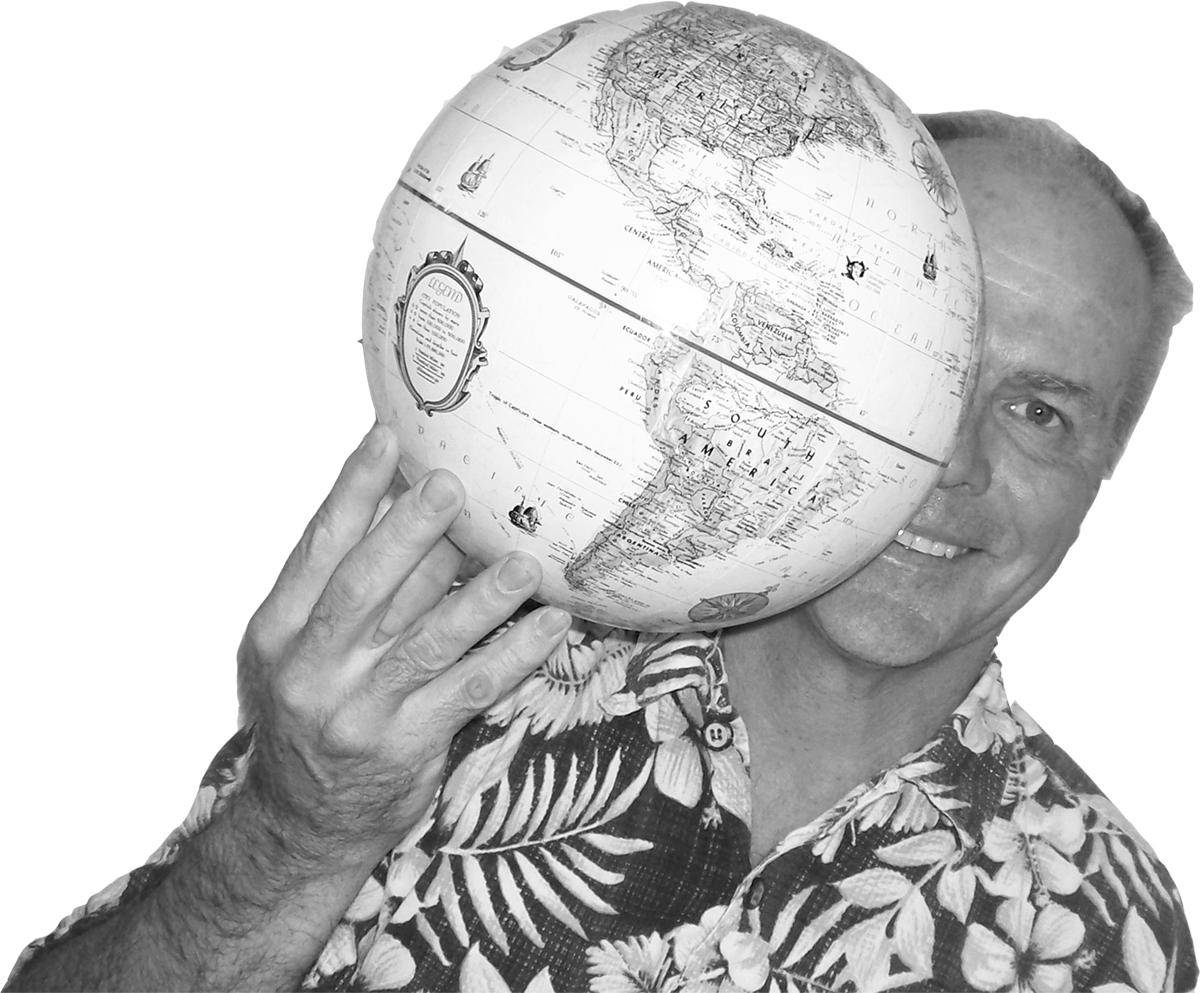Carol and I love to take a brisk walk every day — usually at least three miles or so, and usually at sunset. It’s a great way to let whatever seemed so important throughout the day to dwindle and fade back into a “So, that happened” memory, and let us refocus our minds back to what’s really important.
Along the way, we often run into a handful of others that we pass with a smile or a wave, but after meeting them time and again, we think of them as “the usual suspects.” And then we introduce ourselves, chat for a bit, and then go on our way again.

We’ve met Mark and Lindsey that way. And Mike and Lorna. Ron and Kathy. Neil and Usha. Darrell and Pamela.
We always stop and chat for a bit, but only for a few moments. Sunset is coming fast, and we’d all like to be home before it gets too dark. So we only touch on the important things in life, like how Mark and Lindsey’s old dog Bosco seems to be handling his arthritis today, or how Usha might explain the meaning of that Indian slogan she just used.
I suppose if we walked at some other time of the day — early morning, or noon — it might be different. At some other time of the day we might linger a bit longer, veer off into subjects that may seem important to touch upon, spend a few minutes more before moving on. But sunset waits for no man or woman, and so you balance your words against the clock, touching only upon the items that you know are most important to all of you before you turn with a smile and pass by.
I like the “usual suspect” etiquette at sunset.
And although you might argue that it would be better to dig in a bit more — maybe even set up a long lunch together to learn more about each other — there are potential pitfalls down that road.
I thought of that the other day when we ran into Mark and Lindsey, whom we have known as “usual suspects” for two or three years. We chatted for a few extra minutes that day, because they had travel plans and we wouldn’t see them again for several months.
“So, I guess we should all just stop watching the news until after the election,” Mark said with a smile.
“Sounds good to me,” I said, and we laughed.
It may seem like a strange exchange, but it made sense to both of us.
It was the day after the Supreme Court rough-draft document was leaked, hinting that the new Trump-appointed justices had tilted the balance, and that Roe v Wade would almost certainly be overturned.
Mark chose that day to say “Stop watching the news” because a year-and-a-half ago, Carol and I bumped into Mark and Lindsey on a day when we lingered a bit longer to talk about the important events of the day. That day was January 7, the day after the insurrection at the Capitol.
Mark said that it was BLM rioters and Never-Trumpers disguised as MAGA people who had stormed the Capitol.
I laughed at his ironic joke — but then I realized that he wasn’t joking. He really believed that the insurrectionists were liberals in sheep’s clothing, executing a “false flag” operation with the express goal of blaming it on Trump and his party.
“Oh, wait, you’re serious,” I said to him, a look of incredulity on my face.
His face looked incredulous at my reaction, too. “Wow, you’ve really drunk the Kool-Aid,” he said.
That was pretty much the end of the discussion, and we parted on chilly, bitter terms.
Still, Mark and Lindsey were part of our “usual suspect” group, and so we continued to meet them with a smile and friendly words. I did my best to hide that pitiable expression I’m sure I get on my face when I talk to some completely clueless person — the expression that Mark had on his face each time he talked to me from that day on.
It was like looking in a mirror — each of us so different, and yet so alike.
Because it pays to remember that your mirror image is both a reflection of you, and also the opposite of you. That mole on your left cheek is on the right side in the mirror, isn’t it? That part in your hair, that scar, that broken collarbone. Opposite, and yet the same. Two sides of the same coin.
It’s like that with Mark and me — both of us so certain of our “facts,” so trusting of our sources. One of us was clearly wrong, and each of us “knew” exactly which one it was.
Like that image you see in the mirror, so similar to you, and so dissimilar at the same time.
That day after the Supreme Court bombshell, when Mark smiled and said we should stop watching the news until after the election, he didn’t mean it literally. He was acknowledging the fact that we would see issues from opposite sides, because we get our news from different places.
And when you can’t agree on which news is real and which is fake, “usual suspect” etiquette focuses our chats to more important things that we can all care about and agree upon in our common hearts in the moment just before the sun goes down.
Like how Bosco’s arthritis is doing today.
TR Kerth is the author of the book “Revenge of the Sardines.” Contact him at trkerth@yahoo.com.




